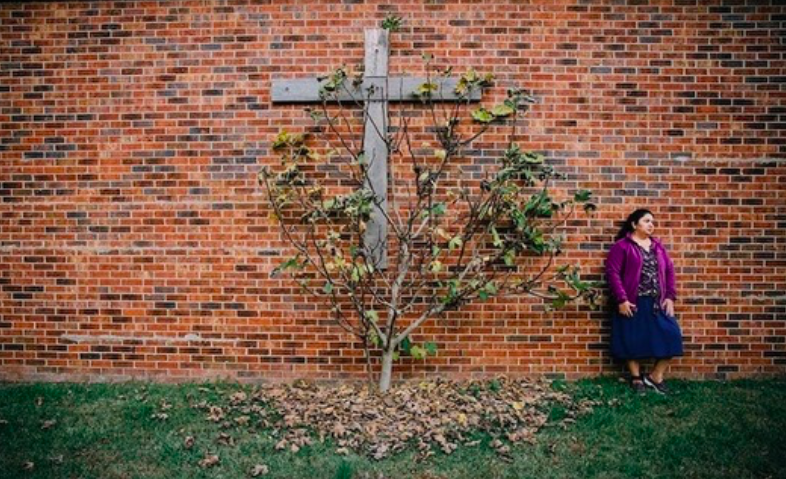
Juana Ortega remains in sanctuary in a church in North Carolina. Her case is highlighted in the film Santuario. (Working Films/WomenAdvaNCe)
This article was shared with permission from the NC Public News Service.
RALEIGH, N.C. — Juana Ortega came to the United States in the 1990s seeking political asylum from Guatemala, but for the past few years she’s been living in a Greensboro church under sanctuary. Her story is the focus of a film that looks at the ways immigration enforcement practices are harming families beyond the crisis at the border.
For nearly a decade, said Stefania Arteaga, statewide immigrants’ rights organizer for the ACLU of North Carolina, Ortega checked in with ICE each year and received a stay of deportation. But in 2017, she was suddenly told she had 30 days to leave the country or she’d be deported.
“If you look at immigration policy, since the ’80s on forward, we’re seeing an increase in enforcement and detention centers,” Arteaga said, “however, seeing more limitations put into place for people to be able to adjust their status.”
Arteaga said non-criminal deportation cases like this one have skyrocketed under the Trump administration. Rather than leave her four children, Ortega decided to use a loophole in ICE policy that prevents the agency from arresting residents of churches, hospitals, schools and other locations deemed sensitive.
The documentary “Santuario” is free online Thursday June 18th as part of a virtual film series, “Stories Beyond Borders.” It’s hosted by Working Films and Women AdvaNCe.
Arteaga said taking sanctuary often means living in a perpetual limbo. It’s a legally complex landscape and cases can be drawn out for years. She said the nation is long overdue for an immigration law overhaul.
“People who are in sanctuary are people who are doing their very best to stay in this country,” she said, “and are just waiting for some sort of discretion that is utilized to help them stabilize their case.”
Ortega’s daughter, Lesvi Molina, said living in sanctuary has taken its toll on the entire family, but especially on her mother’s physical and mental health. She said it also has led to financial hardship for her mother, who worked as a seamstress for decades.
“It’s hard because the whole situation has cut her income in half, because she is not able to work,” Molina said. “She’s been here for what, 27 years? She’s always worked.”
Molina said her mother’s status remains unchanged, and she believes only a new administration will bring hope for a return to her life and family without fear of deportation.
Access to the event can be found online at eventbrite.com, and more information about the film is at santuariofilm.com.
This article was shared with permission from the NC Public News Service.
There are no comments
Add yours